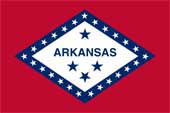|
About
Dr. James M. Keller Written by Bob
Freeman
Dr. James M. Keller was
born at Tuscumbia, Alabama on January 29, 1832. He was
descended from Caspar Keller, a native of Switzerland,
who first settled in Maryland when he came to America in
the middle 1700’s. Living for several years at
Knoxville, Tennessee, Dr. Keller’s father – Casper
Keller’s son – relocated to northern Alabama where he
founded and named the town of Tuscumbia, and “entered”
large tracts of land there. Once a year he journeyed
from Tuscumbia to Philadelphia on horseback to purchase
supplies for his plantation, and in the Keller family
scrapbooks are many of the letters to his family which
give charming and vivid accounts of these
trips.
Dr. Keller’s mother was a daughter of one
of Gen. Lafayette’s aides, Alexander Moore, and
grand-daughter of Alexander Spotswood, the Royal
Governor of Virginia Colony who was appointed in 1714 by
Queen Anne. She was also second-cousin to Robert E.
Lee.
Dr. Keller attended the Old Field School in
Tuscumbia, and later entered the University of Kentucky
at Louisville, later known as Louisville Medical
College, where he received his Degree of Doctor of
Medicine in 1852. During that same year he met and wed a
twenty-two year old belle from Louisville named Sally
Phillips. From that union two sons were born, Murray P.
and James Irvin Keller.
When the war began in
1861, Dr. Keller was practicing medicine in Memphis, and
living with his family in a country home just outside
the city. Being a “true son of the South”, Dr. Keller
enlisted in the Confederate Army, as did his younger
brother Arthur, who was still living at Ivy Green, the
old family plantation home at Tuscumbia. Dr. Keller was
commissioned Surgeon by his distant kinsman, Dr. S.P.
Moore, Surgeon General, C.S.A. His first order was to
establish a military hospital at Memphis, as that city
was considered a strategic point on the Mississippi
River.
Sally Keller’s efforts soon matched those
of her husband, as she helped organize the local ladies
of Memphis to assist in nursing wounded Confederate
soldiers at what became known as the Overton Hotel
Hospital. Dr. Keller’s medical and organizational skills
quickly came to the attention of the Confederate high
command and – after the Battle of Shiloh, Tennessee in
April, 1862 – he was given the rank of Major and
transferred to Arkansas where he was designated Medical
Director of the Trans-Mississippi Department under the
command of Gen. Thomas C. Hindman of Helena. The task of
organizing adequate hospitals and medical supplies in
the rural state would be extremely difficult at best,
therefore Dr. Keller believed the “wild country” of
Arkansas was no place for his beloved Sally; so with
great sorrow she stayed behind in Memphis where it was
believed she would be safer. But events proved Dr.
Keller’s thinking wrong, for Gen. W.T. Sherman and his
armies invaded Tennessee, and captured Memphis in July,
1862, and made that city the a base of operations to
control the Mississippi River and cut the Confederacy
into halves.
Mrs. Keller became a thorn in the
sides of various Federal Generals as she was very vocal
about her hatred of the invasion of the South by
Lincoln’s armies, Gen. Sherman soon ordered Mrs. Keller
to be banished from the city of Memphis, and the order
was executed [by] the Federal Provost Marshal who rowed
Mrs. Keller and her two young sons across the river and
abandoned them on a mud bank in Arkansas. With Mrs.
Keller was a faithful, old slave – the former bodyguard
of Dr. Keller. By his resourcefulness, he guided them
overland through swamps and creek beds, dusty roads and
broken country until they reached the home of Mrs.
Keller’s parents at Louisville, Kentucky. Not until the
end of the war did Dr. Keller learn of the whereabouts
of his family. A copy of the order which banished Mrs.
Keller from Memphis because a prized family possession,
which Mrs. Keller often displayed at functions of the
U.D.C.
Participating in numerous campaigns
against Federal forces in Northwest Arkansas, Dr. Keller
was conspicuous in his tireless attendance to the care
and treatment of the wounded, both Confederate and
Federal. Gen. Hindman commended Dr. Keller in numerous
dispatches to Richmond and the Governor of Arkansas as a
consummate medical officer. No matter what the color of
the uniform of a wounded soldier, each was treated with
all his attention and skill.
In 1864 Dr. Keller
at his own request was assigned to the Dept. of the
Gulf, with Headquarters in Mobile, Alabama. His plan was
to outfit a navel war vessel with crewmen that he
himself would select, and then participate in the naval
war with Farragut’s fleet. Shortly before the fall of
Mobile, Dr. Keller was transferred to the Army of
Tennessee, and served on the staff of Gen. Nathan
Bedford Forrest for the remainder of the war until
surrendering on May 4, 1865 near Citronelle,
Alabama.
After reuniting with his family in
Louisville, Dr. Keller returned to Memphis to find his
county home devastated, and the buildings burned. With
no private practice in which to engage, Dr. Keller was
offered by the Mayor of Memphis the position of Director
of City Hospitals. For the next three years Dr. Keller,
assisted by his energetic wife, treated some several
thousand wounded and crippled veterans of the
war.
In 1868 Dr. Keller and his family relocated
again, and for the last time, to Hot Springs, Arkansas
where he immediately entered into private practice. But
the Kellers were anything but private in their new,
adopted place of residence. Besides joining and helping
to organize numerous art, literary and social clubs,
both Dr. Keller and Mrs. Keller were vocal defenders of
the cause for which the Southern States had contended in
the late
war. |



 Copyright ©2014 James M. Keller SCV Camp
#648
Copyright ©2014 James M. Keller SCV Camp
#648